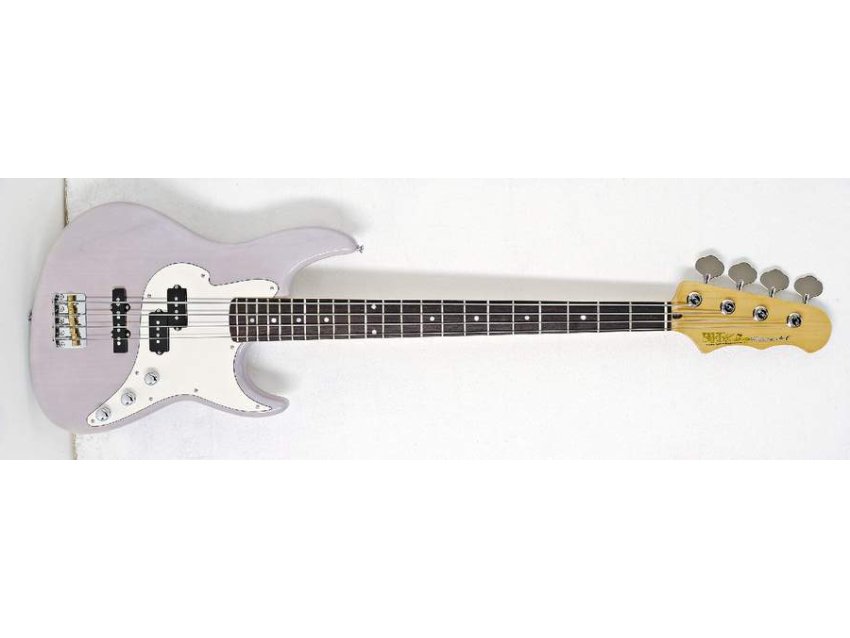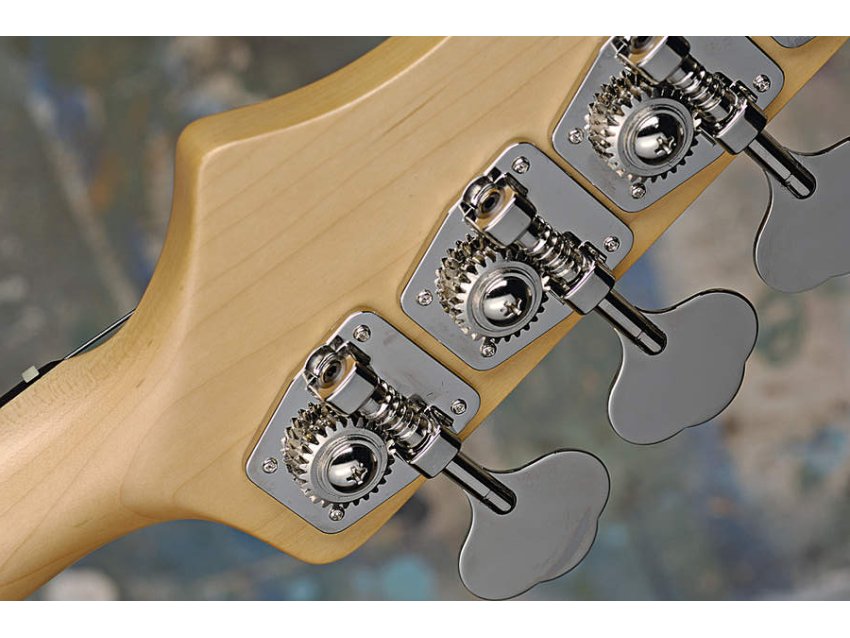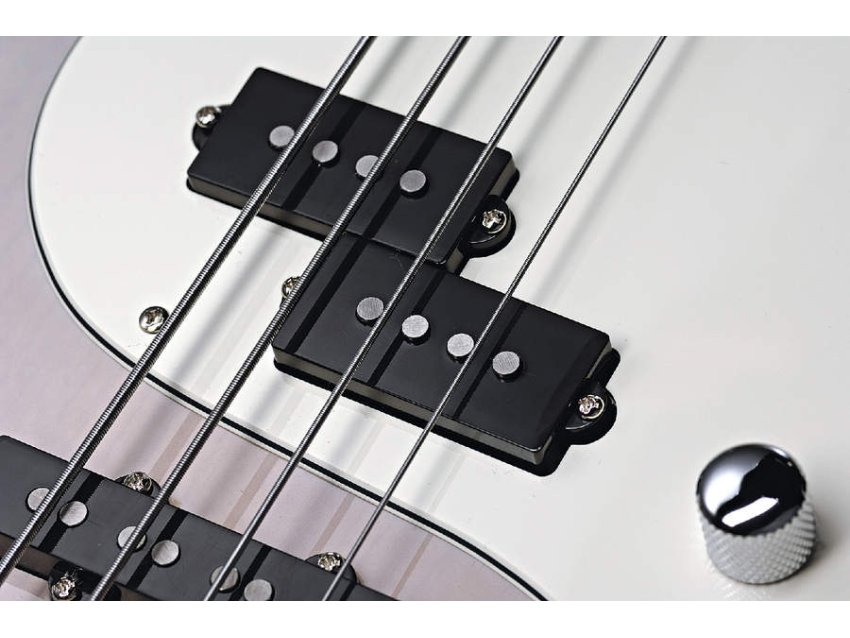MusicRadar Verdict
One of the nicest P/J hybrids we've encountered.
Pros
- +
Good build and sounds. Original spin on a classic recipe.
Cons
- -
Limited choice of finishes.
MusicRadar's got your back

Fret-King Blue Label Perception 4

Fret-King Blue Label Perception 4

Fret-King Blue Label Perception 4
The Fender Precision Bass is the most cloned bass guitar of all time - and with good reason - but rather than merely offering a close copy, designer Trev Wilkinson has tweaked the original to
produce a viable and rather sexy alternative.
Hands on
With its offset body design, two pickups and three controls it actually has more in common visually with a Jazz Bass. However, the wider neck gives it more of a P-bass feel so it touches both bases, if you'll pardon the pun. Could it be a perfect blend of two classics?
The kinky shaped scratchplate and 'bat-wing' headstock add extra touches of originality and help to provide the Perception with a DNA all of its own. It's a well-balanced instrument that sits comfortably into the body thanks to the usual forearm chamfer and rear body scooping.
The finish is translucent, so that the grain of the USA alder body shows through and although this particular colour is called ice white, seen in contrast to the brilliant scratchplate it actually looks more like a soft lilac that's both unusual and strangely compelling.
The satin finish to the neck is beautifully tactile and both basses have edge-mounted jack sockets, but as these are flush fitted there are no screws visible and the effect is much better for it - a simple and effective design feature.
Sounds
The advantages of any bass guitar having two pickups instead of one can never be overstated. Even with a passive circuit, the tonal range is opened right up to give this bass a voice that can be used to advantage no matter what musical style you need.
With individual volume controls provided, getting a good blend between the pickups is as easy as can be, but having a split-coil unit and a regular single-coil does mean that the hollow tones produced when using both units are somewhat different than when both pickups are of the same configuration.
The combination here is slightly less plummy but just as good in its own right - in fact, many players prefer this more rounded sound.
It's the split-coil pickup that dominates the sound, however, making it a P-bass with an added second pickup rather than a standard Jazz bass sound.
Both units have their own merits, of course and with such a strong foundation, getting a poor sound from this bass is not an option. It delivers good, strong tonal definition whether using fingers or pick - a great all rounder!
Guitarist is the longest established UK guitar magazine, offering gear reviews, artist interviews, techniques lessons and loads more, in print, on tablet and on smartphones Digital: http://bit.ly/GuitaristiOS If you love guitars, you'll love Guitarist. Find us in print, on Newsstand for iPad, iPhone and other digital readers
“We were arguing a lot and we were miserable”: How Green Day exceeded expectations with their most ambitious song
"There’s plenty for us guitarists to learn – and ‘less is more’ is the overriding lesson": how to play like George Harrison on The Beatles' Abbey Road
“They didn’t like his bikini underwear”: Prince’s support sets for the The Rolling Stones in 1981 are remembered as disastrous, but guitarist Dez Dickerson says that the the crowd reaction wasn’t as bad as people think










